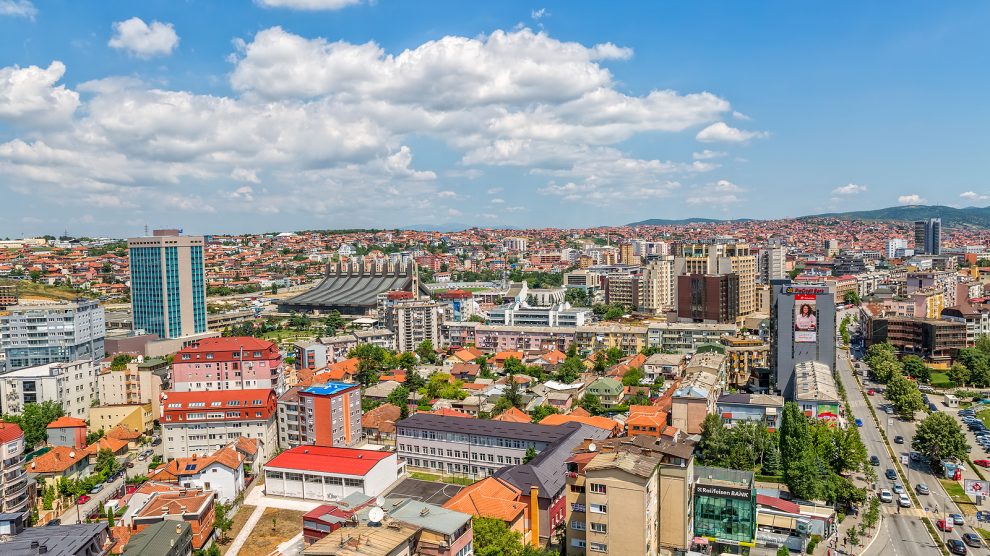The Western Balkans should also not lose sight of their long-term goals to achieve energy security and resilience as part of the green reform agenda
The six countries of the Western Balkans region (Albania, Bosnia and Herzegovina, Kosovo, Montenegro, North Macedonia, Serbia) are facing a new range of economic challenges, despite a better-than-expected rebound from the recession caused by the Covid-19 pandemic, according to the latest Western Balkans Regular Economic Report, published on May 4 by the World Bank.
- As EU targets oil in new round of Russia sanctions, Hungary, Slovakia seek opt-outs
- Emerging Europe’s dependence on Russian energy goes beyond gas
- Less carrot, more stick: EU support for Western Balkans ‘insufficient’, say auditors
GDP growth in the region reached 7.4 per cent in 2021, after a contraction of 3.2 per cent in 2020. This return to growth saw significant job creation, with employment demand helping to reduce poverty across all six Western Balkan economies. In 2021, the Western Balkan employment rate increased to a historical high of 45.8 per cent, led primarily by employment recovery in Serbia and Kosovo.
Growth was driven by an exceptionally strong rebound in consumption, helped by both fiscal stimuli, pent-up demand, as well as a relaxation in movement and travel restrictions.
However, the post-pandemic recovery has been cut short, as the war in Ukraine sends shockwaves across the region. Growth for the Western Balkans is now forecast at 3.1 per cent in 2022.
Kosovo leads growth forecasts
Broken down at country level, growth is forecast at 3.9 per cent in Kosovo, where ongoing private investment and accelerated public investment and consumption are expected to be supportive of growth, 3.6 per cent in Montenegro, 3.2 per cent in Serbia and Albania, and 2.7 per cent in North Macedonia and Bosnia and Herzegovina.
“Despite a strong rebound from the pandemic, the Western Balkans now face a new set of challenges, compounded by the war in Ukraine, including rising energy and food prices, high inflation, and slowing trade and investment,” says Linda Van Gelder, World Bank country director for the Western Balkans.
“Careful policy support will be needed to navigate the Western Balkans through these crises and protect the important gains made in 2021, including poverty reduction.”
The downside risks to the region’s economic outlook are daunting. An expanded conflict or prolonged war in Ukraine could trigger further disruptions to global trade and to energy and food prices. Refinancing risks could arise if external financial market conditions continue to tighten. Debt sustainability may become a concern if limited fiscal space is eroded by policy responses to higher energy and food prices amidst rising refinancing costs.
“In such an environment, government policy needs to focus on building resilience and on undertaking structural reforms to support growth and steer through the crises,” says Sanja Madzarevic-Sujster, World Bank senior economist and one of the report’s lead authors. “With limited fiscal space, countries will need to carefully weigh the costs and benefits of new spending commitments in response to higher energy and food prices, prioritising the most vulnerable households.”
Energy crisis
In the context of the energy crisis in Europe, the report also provides an assessment of the vulnerability of the Western Balkan countries to energy price shocks, measures adopted by the governments to mitigate the impacts, and how the crisis can affect the green energy transition going forward.
“In responding to the current energy crisis, and ensuring protection of the most vulnerable households and firms, the Western Balkans should also not lose sight of their long-term goals to achieve energy security and resilience as part of the green reform agenda,” adds Richard Record, World Bank lead economist and one of report’s the lead authors.
The report argues that sustained growth cannot happen without structural reforms to boost productivity, increase competition, invest in human capital, and strengthen governance. Measures to reduce business regulatory costs, increase market competition, support labour market participation, and strengthen the independence of public institutions would all be supportive of growth in an uncertain environment.
Unlike many news and information platforms, Emerging Europe is free to read, and always will be. There is no paywall here. We are independent, not affiliated with nor representing any political party or business organisation. We want the very best for emerging Europe, nothing more, nothing less. Your support will help us continue to spread the word about this amazing region.
You can contribute here. Thank you.








Add Comment